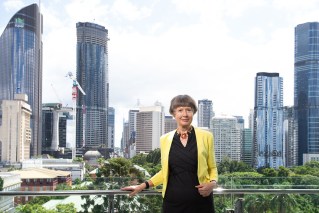
Setting the direction for recovery: What the key tax measures mean for everyday Queenslanders
This year’s Federal Budget delivered a mix of tax relief, tax rule changes and new spending to prime the economy.

(Image: Unsplash - @kellysikkema)
According to Andrew Jones, tax partner at BDO in Brisbane, Queensland’s low and middle income earners are in for tax relief, along with small to medium businesses.
“Thanks to stronger employment figures, consumer confidence and commodity prices, the nation’s economy is in pretty good shape, especially when compared to other countries,” Mr Jones explained.
“Treasurer Frydenberg’s key tax announcements were tax relief for low and middle income earners and small and medium businesses, along with a focus on women and attracting global talent to our shores.”
Supporting small and medium businesses investment
A 12-month extension to the temporary full expensing measures, until 30 June 2023 will undoubtedly be welcomed by many.

Andrew Jones, Tax Partner at BDO. (Image: Supplied)
“This generous measure provides eligible businesses – broadly, those with turnover of less than $5 billion – with an immediate deduction for the full cost of depreciating assets,” Mr Jones said.
“As the country recovers from the economic impacts of COVID-19, businesses must be able to continue investing in capital assets, so this measure is crucial to facilitating a smooth economic recovery.
“With many businesses reporting significant delays in delivery of eligible assets, the extension of time for the immediate deduction will no doubt mean they can feel confident in being able to fully deduct the cost of assets they now order.”
The loss carry-back rules have also been extended for another year.
“Companies with turnover less than $5 billion will be able to write off COVID-19-induced losses against previous taxed profits to the 2022-23 income year, helping offset tax paid on profits from the 2019 and subsequent income years,” Mr Jones outlined.
“This provides much needed support to companies experiencing a delayed downturn from the COVID-19 pandemic, and should allow companies to better use the extended temporary full expensing measures.”
Tax cuts for low and middle income earners
Extensions are certainly a trend in this year’s budget, with the Low and Middle Income Tax Offset (LMITO) also retained for another year, until the end of next financial year (2021-2022).
“For Queenslanders earning $48,000 to $90,000 this means welcome relief at tax time, as they could receive a one-off tax offset worth up to $1,080 for their earnings less than $90,000. It will come through as either a reduction in their tax payable or an increase in their tax refund, when they lodge their tax return,” Mr Jones explained.
“Medicare levy thresholds are also increasing to account for recent movements in CPI, with the changes applying to singles, families, seniors and pensioners from 1 July 2020.
Childcare gets a boost
There is a definite focus on families when it comes to the Government’s childcare announcements in the budget.
“Many parents and carers will welcome the $1.7 billion scheme to remove the childcare subsidy cap for higher income earners and increase subsidies from 65% to 95%, for families with two or more children,” Mr Jones said.
“The changes, which come into effect on 1 July 2022, will hopefully reduce the burden of childcare costs for families with small children and help to level the playing field when it comes to their cost.”
Superannuation – good news for lower income earners, but a missed opportunity for working parents
The Government has proposed the removal of the $450 per month minimum income threshold that determines whether employees must pay the superannuation guarantee by their employer.
“This is a huge win for lower income earners and superannuation equity for all, but the administrative burden on employers cannot be underestimated,” Mr Jones explained.
“Once this measure is implemented, employers will need to ensure they have an appropriate and up-to-date payroll system in place and be able to track and capture any casual working arrangements.”
Unfortunately, the Government has missed an opportunity to support working parents through its superannuation measures.
“We were really hoping the Government would choose to pay superannuation to employees whilst they are on paid parental leave,” said Mr Jones.
“It would have been a welcome incentive to get more women returning to the workforce and help boost their superannuation savings, as for many they are much lower than their male peers.”
These are just some of the measures from the 2021 Federal Budget. To learn more about what these and other budget measures mean for you, your family or your organisation, contact a BDO expert today.

















